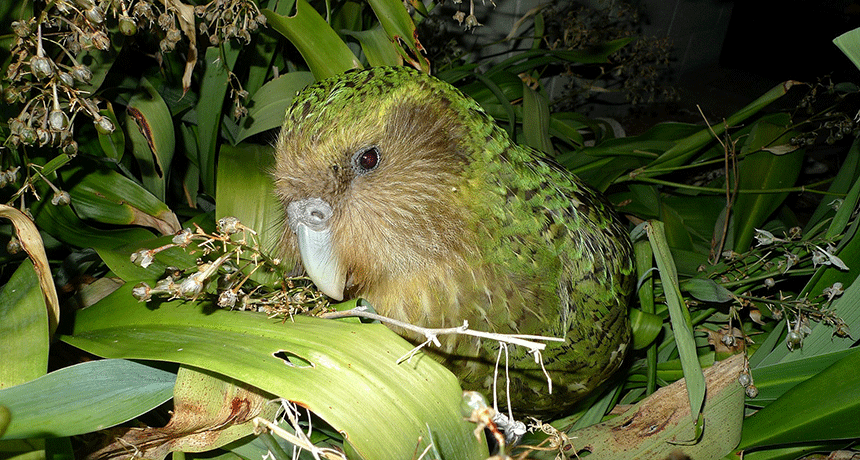birds Warm-blooded animals with wings that first showed up during the time of the dinosaurs. Birds are jacketed in feathers and produce young from the eggs they deposit in some sort of nest. Most birds fly, but throughout history there have been the occasional species that don’t.
ferret A mammal belonging to the family of animals that includes weasels, skunks, otters and badgers.
fruit A seed-containing reproductive organ in a plant.
kakapo A large, nocturnal and flightless parrot that lives in New Zealand.
New Zealand An island nation in the southwest Pacific Ocean, roughly 1,500 kilometers (some 900 miles) east of Australia. Its “mainland” — consisting of a North and South Island — is quite volcanically active. In addition, the country includes many far smaller offshore islands.
predator (adjective: predatory) A creature that preys on other animals for most or all of its food.
species A group of similar organisms capable of producing offspring that can survive and reproduce.
Western (n. the West) An adjective describing nations in Western Europe and North America (from Mexico northward). These nations tend to be fairly industrialized and to share generally similar lifestyles; levels of economic development (incomes); and attitudes toward work, education, social issues and government.








